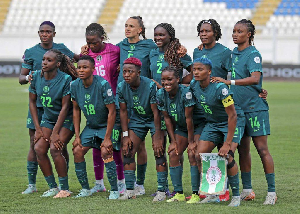The ongoing Direct Oral Polio Vaccination (DOPV) in Kano State has targeted no fewer than 3,242,040 children across the 44 local government areas of the state, Commissioner for Health, Aminu Ibrahim Tsanyawa announced on Friday.
Tsanyawa in a press conference assured that about 3,810,920 doses of vaccine were available to satisfactorily take care of the targeted kid population.
“All preparations for the round had been completed before the vaccination started yesterday. I therefore urge parents to take this opportunity and immense benefit by bringing out their children to be immunised,” he said.
He expressed delight that Kano State has been free of poliomyelitis for six years now, explaining that the routine immunisation embarked in Kano is a reliable and polio-free sustainability plan.
He reaffirmed the government’s commitment towards healthcare delivery in Kano, ensuring that all eligible children must be immunised through various programmes.
The health commissioner said Kano State would utilise and sustain its equipment and human resources gained during all the polio programmes in the state.
Tsanyawa explained that, with huge resources, the Kano government has established Local Government Routine Immunisation Coordination Centres in all the 44 local government areas of the state.
“Other gains include procurement and installation of two cubic-meter walk-in cold rooms for the state cold stole, including construction of a new store for the walk-in cold rooms.
“Installation of Solar Direct Drives (SDDs), at ward levels and sustainability of in-sourced delivery of vaccines to the last mile.
“Development of Reaching Every Ward (REW) micro plan by all health facilities providing RI services, as well as conduction of reconciliation meetings between ward heads and service providers on a monthly basis at village heads’ residences,” he said.
General News of Saturday, 31 October 2020
Source: thenationonlineng.net













